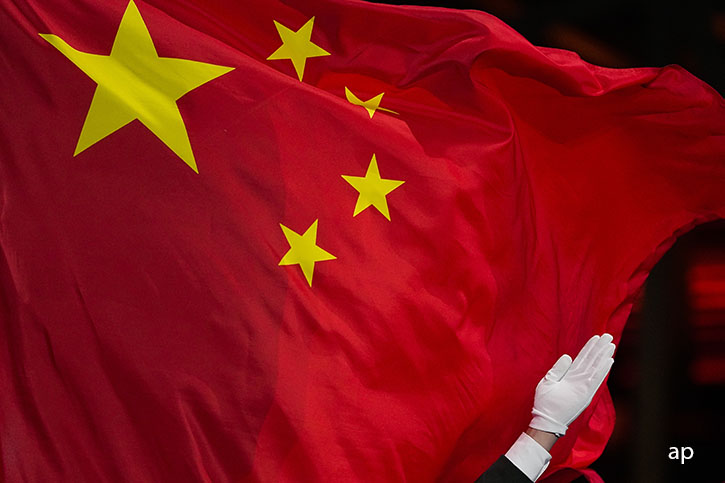China’s central bank has cut one of its key interest rates for the second time in three months as the world’s second-largest economy struggles to bounce back from the pandemic.
The People’s Bank of China (PBOC) lowered its one-year loan prime rate to 3.45% from 3.55%.
The country’s post-Covid recovery has been hit by a property crisis, falling exports and weak consumer spending.
In contrast, other major economies have raised rates to tackle high inflation.
The PBOC last cut its one-year rate – on which most of China’s household and business loans are based – in June.
Jun Bei Liu from Tribeca Investment Partners told the BBC that the move is unlikely to have a major impact but does indicate the Chinese government’s commitment to reviving the economy.
“We will need bigger stimulus package to boost confidence and in turn drive up consumption and growth. Without it, the economy is risking faltering into deflation which will be harder to revive,” she added.
Economists had also expected the bank to lower its five-year loan prime rate, which the country’s mortgages are pegged to. However, it was unchanged at 4.2%.
In a surprise move last week, short and medium-term rates were also cut.
“More rate cuts could be announced in conjunction with government spending, as well as targeted measures to help the property market,” Catherine Yeung, investment director at Fidelity International said.
While Beijing is trying to restore confidence, officials will also be mindful of the long-term implications of the policies, she added.
China’s economy has struggled to overcome several major issues in the wake of the pandemic, which saw much of the world shut down.
Last week, the serious problems in its property market were highlighted when crisis-hit real estate giant Evergrande filed for bankruptcy protection in the US.
The heavily-indebted company is still working on a multi-billion dollar deal with creditors.
Earlier this month, another of the country’s biggest property developers, Country Garden, warned that it could see a loss of up to $7.6bn (£6bn) for the first six months of the year.
In the same week, official figures showed China had slipped into deflation for the first time in more than two years.
That was as the official consumer price index, a measure of inflation, fell by 0.3% last month from a year earlier.
Meanwhile, official figures showed China’s imports and exports fell sharply in July as weaker global demand threatened the country’s recovery prospects.
Beijing has also stopped releasing youth unemployment figures, which were seen by some as a key indication of the country’s slowdown.
In June, China’s jobless rate for 16 to 24-year-olds in urban areas hit a record high of more than 20%.
Andy Jie, an independent analyst in Shanghai, told the BBC that young people in China needed to adjust their expectations on the types of jobs available to them.
“Around 70% of young people in China now go to university and so expect to get a white-collar job afterwards. They want desk jobs, staring at computers. But that’s not possible.”
However, George Godber, a fund manager at Polar Capital in London, said it was not an issue the Chinese government could avoid.
“Youth unemployment tends to drive government policy ahead of most things because nobody wants a disaffected group of young workers.”

